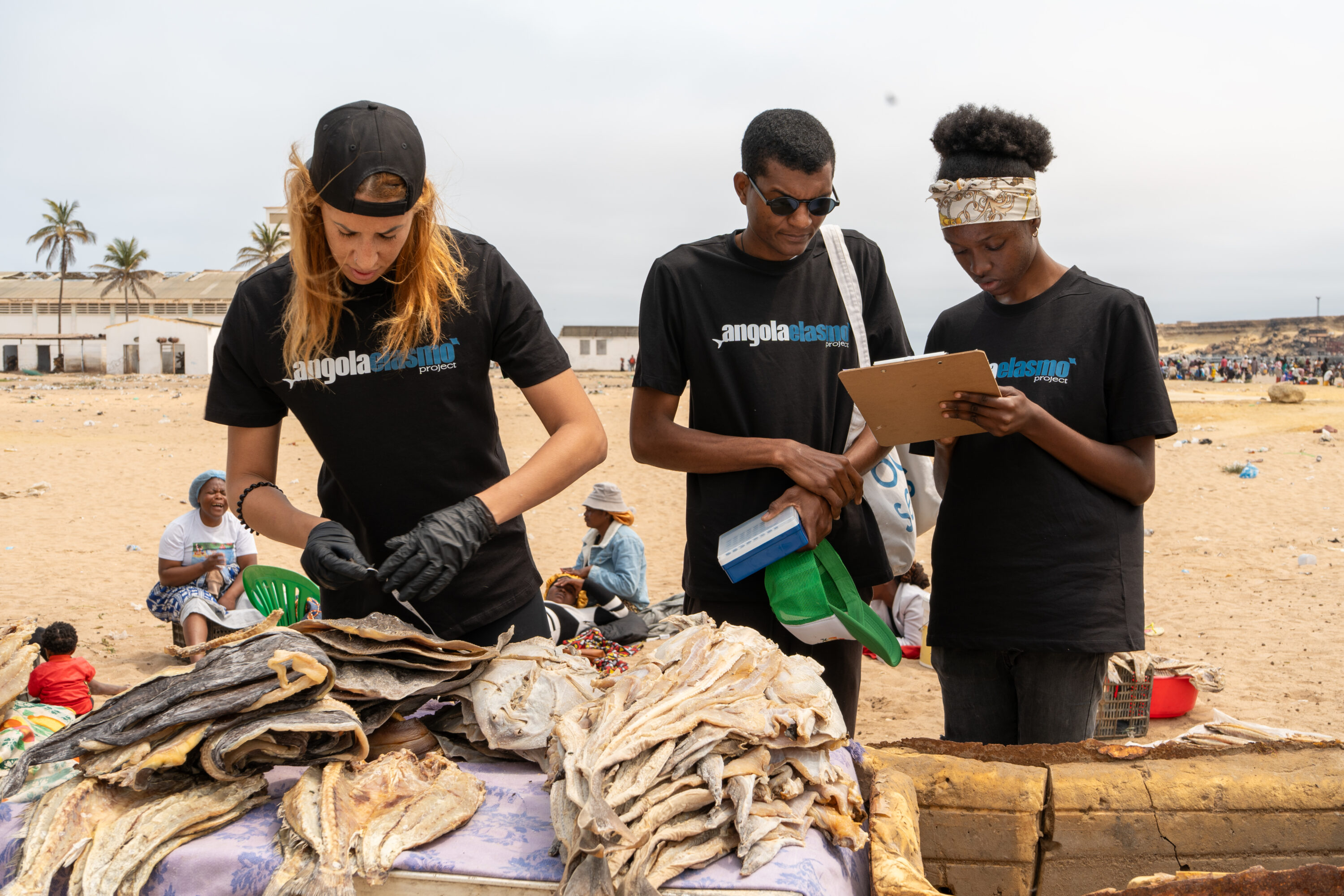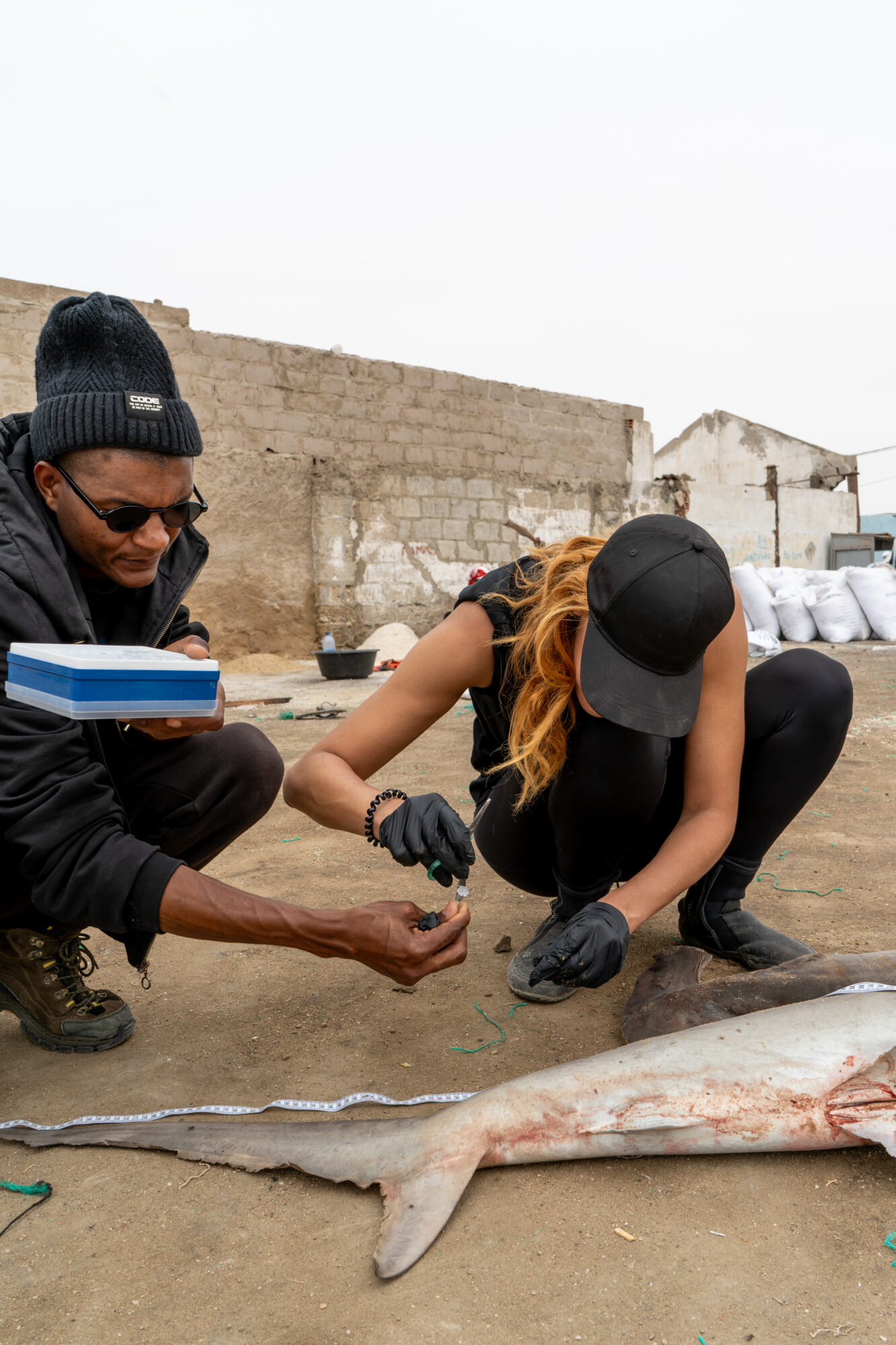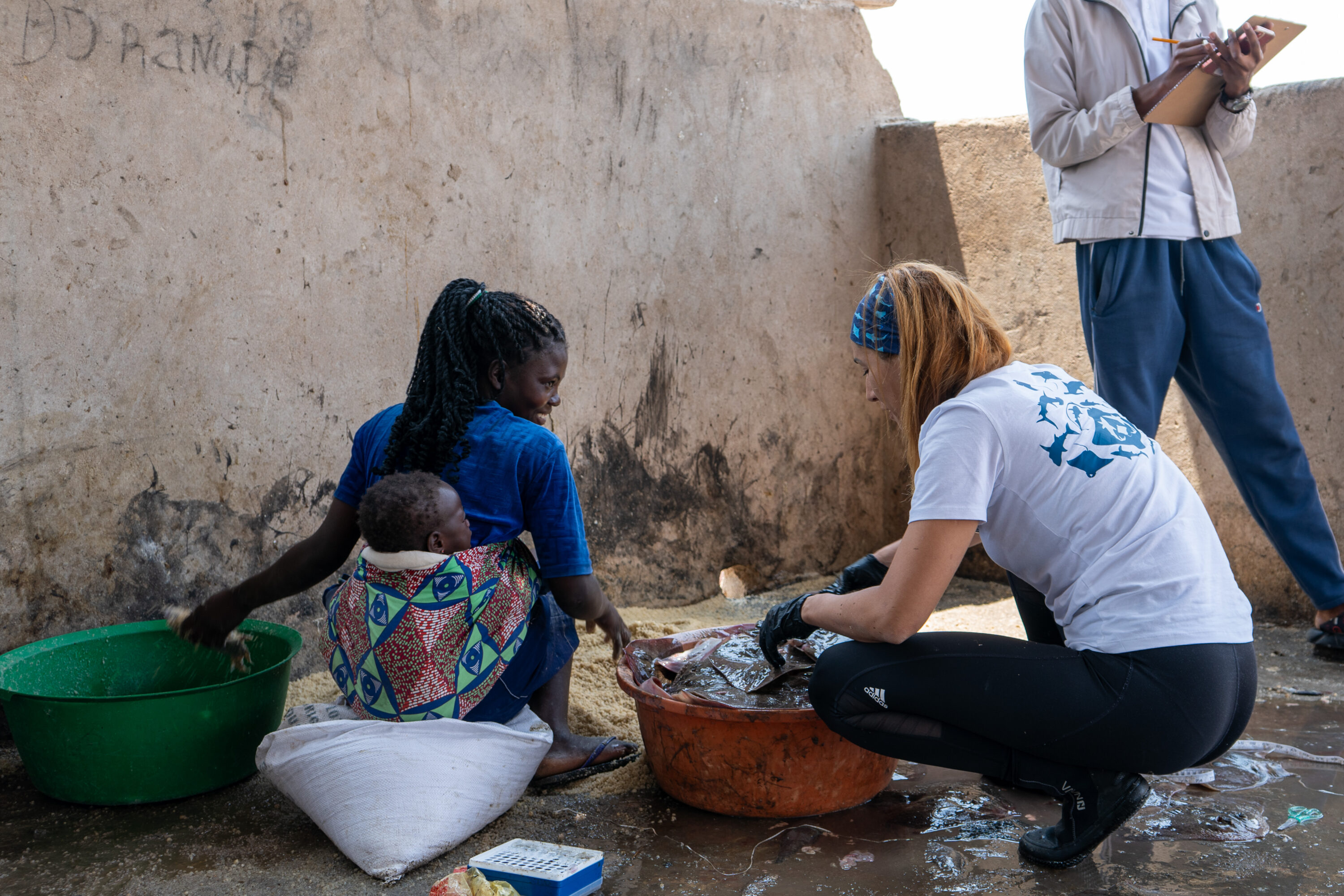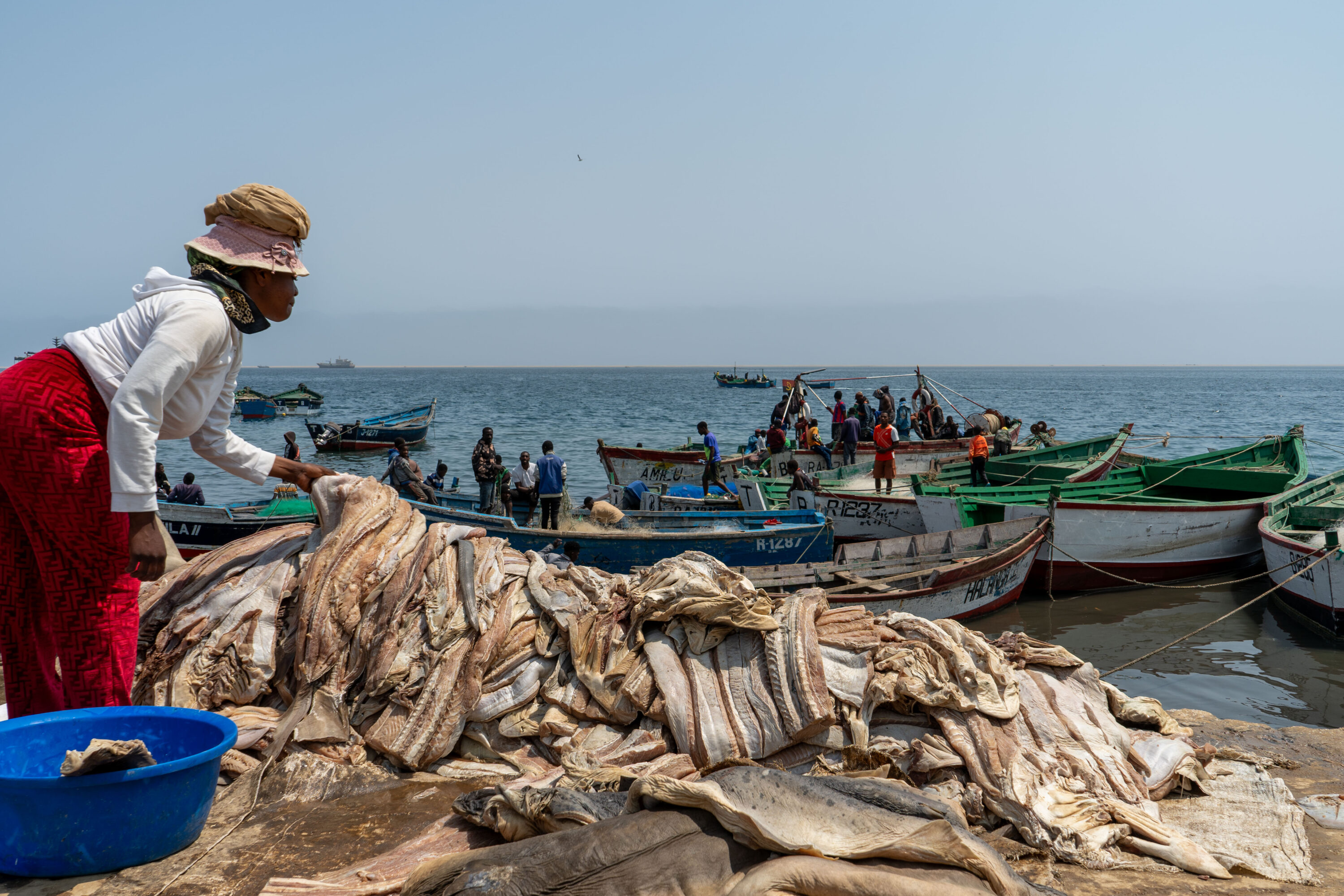Voices from the Sea: Angola’s First Sharks and Rays Database
When we think of sharks and rays, images of the open ocean and deep-sea adventures often come to mind. Rarely do we consider the vital role that small-scale fisheries play in helping us understand these species. Along the beaches of Namibe, the Angola Elasmo Project is making history by creating Angola’s first national database of sharks and rays, combining scientific research, local knowledge, and conservation action.
Science in Coastal Communities
The Angola Elasmo Project works directly with fishing communities, where knowledge of the sea has been passed down through generations. Fishers have a deep understanding of local species, seasonal patterns, and fishing hotspots. Each time a fish is landed on the beach, the project team measures, identifies, photographs, and records details such as species, size, sex, maturity, fishing method, and capture location. DNA samples are also collected whenever possible to provide insight into genetic diversity and population connectivity along the Angolan coast.
Every record contributes to a larger picture, helping scientists understand how species, ecosystems, and human activities are connected. By conducting research in local communities, data is collected where it matters most, on the beaches where people and the ocean meet daily.

The Angola Elasmo Project documents sharks and rays on Namibe’s beaches, recording species, size, sex, maturity and shark and ray tissue samples while working closely with local fishers. Photo © Bernardo de Abreu Cotrim
Why Collect Data?
Collecting data forms the foundation for all conservation and management efforts. Without it, we cannot determine whether shark and ray populations are increasing, declining, or at risk. Detailed records allow researchers to identify species under pressure, evaluate fishing impacts, and track changes over time.
By turning local observations into scientific evidence, the Angola Elasmo Project supports evidence-based management and conservation strategies. This ensures that policies are rounded in reliable data and that conservation measures are practical for communities who depend on the sea.

DNA samples are collected from landed sharks and rays to study genetic diversity. Photo © Bernardo de Abreu Cotrim
Community and Science for Conservation
Collaboration is central to the Angola Elasmo Project. Local fishers are essential partners, sharing knowledge and assisting with data collection. Students and young scientists from Namibe gain hands-on experience through monitoring activities, technical training, and environmental education.
This partnership creates a network of knowledge and action, where everyone contributes to protecting marine resources. Fishers observe changes in the ocean, students participate in research and analysis, and both groups help spread awareness about sustainable fisheries and species conservation.

Highlighting the important role of women in processing sharks and rays, contributing valuable observations and data for research. Photo © Bernardo de Abreu Cotrim
Monitoring Sharks in Angola
The Angola Elasmo Project provides the first systematic insight into the biology and status of sharks along the Angolan coast. Each record, including species, size, sex, maturity, and capture location, helps scientists understand population trends, distribution patterns, and the effects of small-scale fisheries.
By integrating local knowledge with structured scientific research, the project demonstrates how community-based monitoring can generate reliable, actionable data. These observations are crucial for evidence-based management and conservation strategies, helping to protect Angola’s shark populations while supporting the communities that rely on them.
The Angola Elasmo Project shows that combining local knowledge with scientific research produces practical and actionable data. This work supports the conservation of sharks and rays, promotes sustainable fisheries, and strengthens the connection between coastal communities and the marine environment they depend on.

A local fisherwoman with sharks caught along the Angolan coast, contributing vital data for monitoring populations. Photo © Bernardo de Abreu Cotrim
